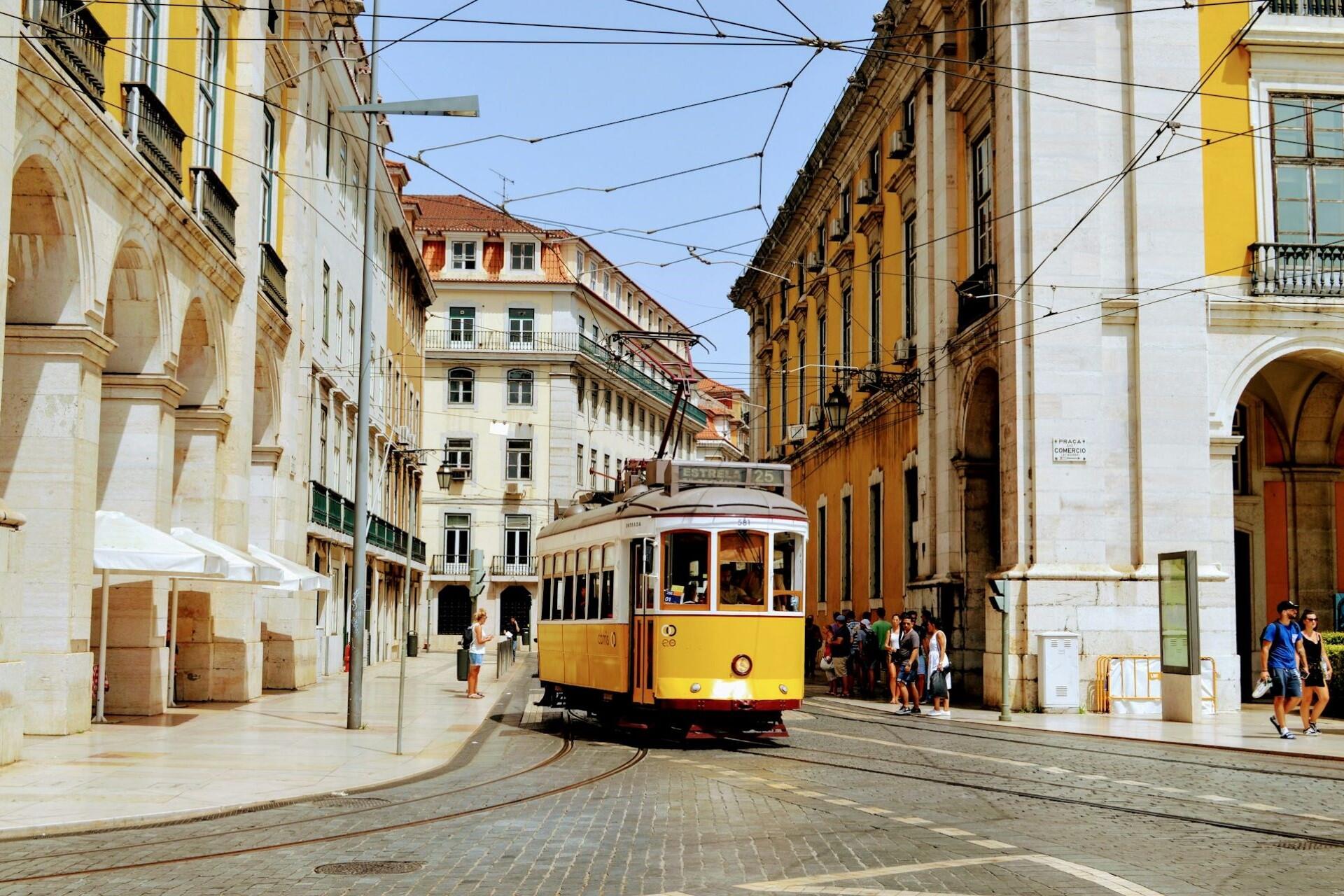My homeland is the Portuguese language.
Fernando Pessoa
Whether you are in the capital city of Lisboa (Lisbon) in the south of Portugal, or on the Atlantic islands of Madeira, in Brazil, or on the Iberian peninsula, you will be sure to find someone willing to name famous Portuguese people and tell you about them. In fact, discussions of famous people in Portugal often highlight how deeply these figures are connected to the nation’s history and culture. A celebrity known throughout the Iberian peninsula, perhaps, someone who makes their native land shine. From Cape Verde to Rio de Janeiro, notable individuals from the Iberian Peninsula have long represented Portugal, both within Europe and globally.

Henry the Navigator
Infante Dom Henrique, nicknamed o Navegador (”the Navigator”) played an important role in Portuguese exploration and colonisation. He was the fourth child of King John I of Portugal and served as an important counsellor to his father. He was fascinated with trade routes and the legend of Prester John, a mythical medieval figure supposedly ruling a Christian kingdom in the otherwise Muslim Orient.
First, he encouraged his father to gain a foothold in the Sahara trade by conquering Ceuta, a port on the North African coast just across the Straits of Gibraltar. He sponsored numerous naval expeditions that refined knowledge of the North Atlantic trade winds, thereby improving navigational data for circumnavigating the continent of Africa. Under his brother Edwards, he was granted the rights to all trading profits from the regions he discovered, as well as a monopoly on tuna in the Algarve.
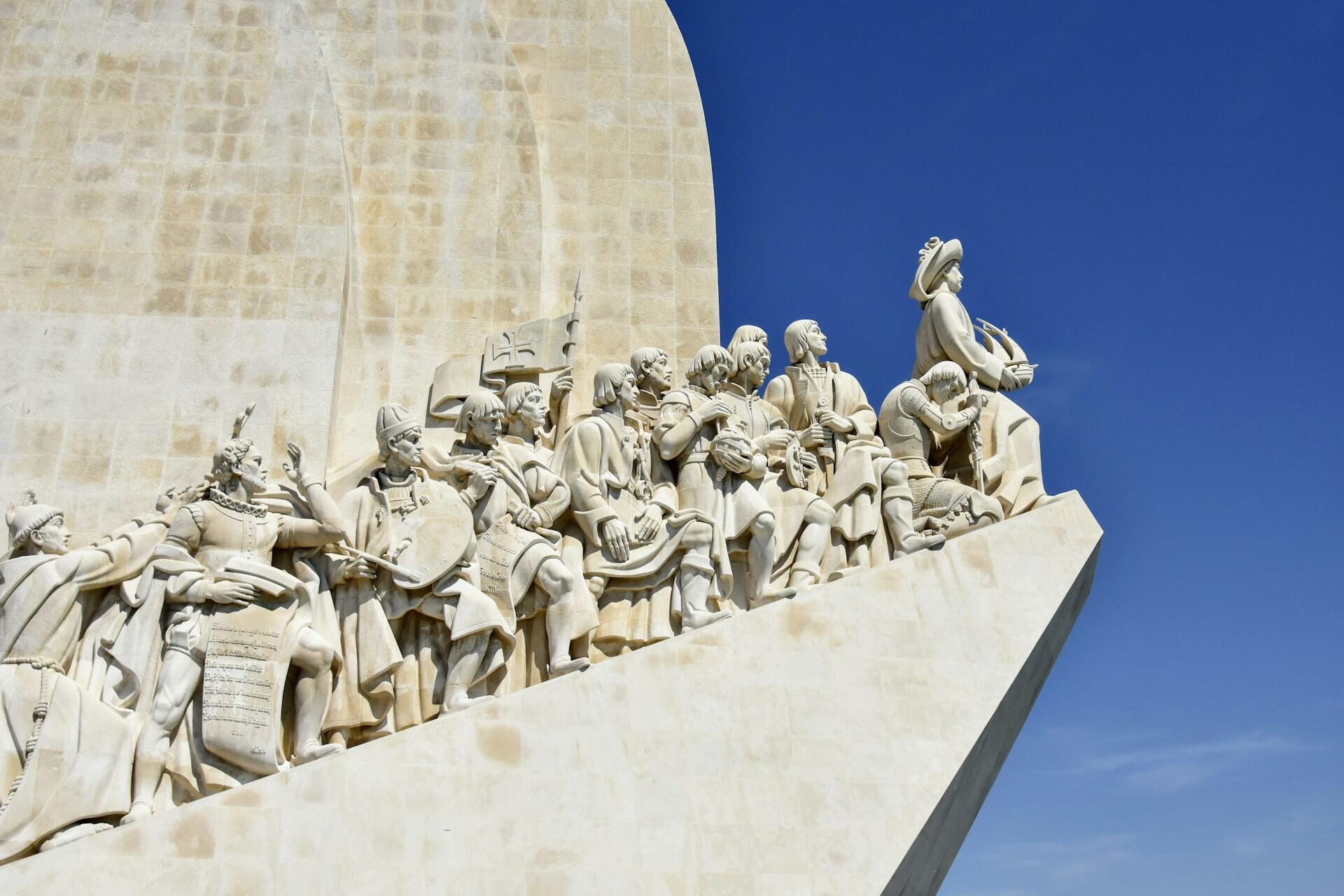
One of Prince Henry’s expeditions, which was actually meant to locate the source of the merchant caravans of the gold trade that ended in Ceuta, was blown off course and discovered the islands of Porto Santo and Madeira. Expeditions financed by Prince Henry the Navigator also discovered more North Atlantic islands, including the Azores Islands, which one-upped Spain's claim to the Canary Islands, and the Cape Verde Islands. Hugging the African coastline, they eventually discovered the origin of the Muslim traders' gold, enriching Portugal while devastating Algiers and Tunis. By the time he died in 1460, explorers from Portugal had made it as far south as the coast of Sierra Leone.
Bartolomeu Dias
In the last decades of the 15th century, the exploration of the African coast continued. In 1488, a former squire of the Portuguese royal court was once more charged with finding the country ruled by Prester John. King John II gave him command of the man-of-war São Cristóvão, which he sailed together with a second caravel, the São Pantaleão. He sailed along the West African coast, past Angola and Namibia, before being blown quite far south during a storm and circumventing Africa from a considerable distance, finally finding land again on the eastern coast of South Africa, where he erected a padrão - a large stone cross - to commemorate the landing (it was rediscovered in 1938). After his crew refused to go on to India, he turned back and officially discovered the Cape of Good Hope on the way home. He played an essential role in equipping Vasco da Gama’s expedition, though he sailed further than the Cape Verde islands on that voyage. He perished in 1500 off the Cape of Good Hope after sailing to Brazil and on to India.
Vasco da Gama
This navigator is known throughout the Portuguese-speaking world. Taking the navigation data collected by Dias and a Portuguese spy in India (who had travelled there by land) Vasco da Gama was able to reach Calicut in 1498. This opened a new route for the spice trade, cutting out the middleman of overland caravans and helped the Portuguese Empire rise as a world power.
Once they had passed the Cape, they made landfall in several places, including Mozambique, where da Gama pretended to be Muslim, and Mombasa, where the crew resorted to piracy to survive. In Malindi, they found evidence of Indian traders and were able to hire a pilot who guided them the rest of the way through the Indian Ocean. On his way back, his brother, Paulo da Gama, fell ill and eventually died. He was buried at the monastery of São Francisco in the Azores. Vasco finally returned to Portugal in 1499.
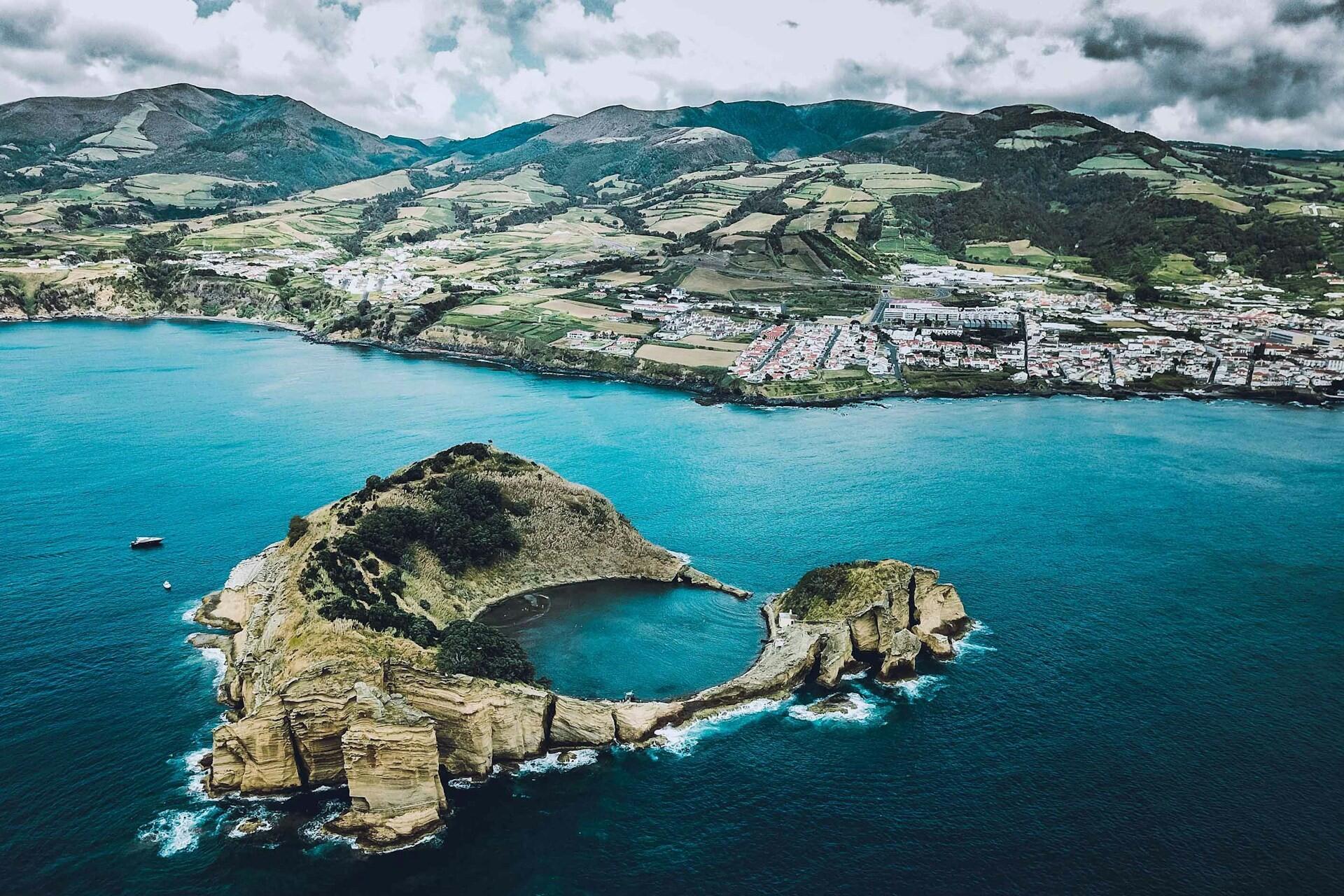
After his second, larger expedition in 1500 - the fourth of a series of yearly Indian Armadas - da Gama waged war on Calicut’s sultan Zamorin brutally and mercilessly, even killing all the pilgrims aboard a ship bound for Mecca. However, he failed to secure the Sultan’s cooperation and returned to Portugal in disgrace. Only when he threatened to follow Magellan’s lead and defect to Spain in 1518 did King Manuel I appoint him Count of Vidigueira, the first Portuguese count not of royal blood.
.
Ferdinand Magellan
Fernão de Magalhães, born in 1480, spent much of his early life as a sailor in India, returning to Portugal in 1512. He moved to Spain in 1517 after falling out with King Manuel I of Portugal. He managed to convince King Charles V of Spain to let him lead an expedition in 1519 to find a westward route to the Spice Islands (the 1494 Treaty of Tordesillas gave Portugal exclusive rights to the eastern route around the Cape of Good Hope).
Christopher Columbus had demonstrated the existence of another continent to the west, and Vasco Nuñez de Balboa had reached the Pacific Ocean in 1513 by crossing the Isthmus of Panama. Magellan sailed with a fleet of five ships in 1519. He died in the Philippines while fighting Datu Lapu-Lapu, an enemy of Rajah Humabon of Cebu, who had befriended the Portuguese explorer and whom he had converted to Christianity. His crew continued without him, eventually arriving in Portugal with a single ship in 1522. Thus was the first complete circumnavigation of the globe.
During the 15th century, Portuguese explorers such as Vasco da Gama and Bartolomeu Dias significantly altered world history. Their voyages opened new trade routes across Europe, Africa, and Asia, laying the foundations for Portugal’s empire. Known as the “Age of Discovery,” this period made Portuguese navigators some of the most famous people from Portugal, celebrated for their courage and skill at sea.

Fernando Pessoa
Fernando António Nogueira Pessoa is a famous Portuguese poet, writer and philosopher who also wrote in English and French. Pessoa was born in Lisboa (Lisbon) on June 13th, 1888. His father died of tuberculosis when he was five. His mother subsequently remarried the Portuguese consul in Durban, South Africa (an English colony at the time), where he grew up. While there, he wrote his first poems and stories in English.
At the age of seventeen, he returned to Portugal to study diplomacy, a course he interrupted in 1907 after a student strike against the dictatorship of João Franco, Prime Minister at the time. Instead, he became an autodidact and attempted to establish his own publishing house, which ultimately failed.
In 1912, he published his first Portuguese piece, a critical essay, in the cultural magazine A Águia. In 1915, he co-edited the literary journal Orpheu, of which only two issues were published (the proofs of a third were discovered in 1984). While working as a freelance translator, he published extensively as a literary critic, essayist, political analyst, and writer, until his death in 1935.
This incredible volume makes him not only one of the most famous Portuguese people in literature but also one of the most prolific writers in Europe.
The many names of Fernando Pessoa
Pessoa wrote under various names, or heteronyms (a term he preferred to "pseudonym", as that implies falsification, while all his noms de plume were aspects of himself). Of these, he accumulated over 70 during his lifetime.
Some of Pessoa's best-known heteronyms were:
- David Merrick, one of his first heteronyms, under which he wrote while still in South Africa
- Alberto Caeiro, a poet who ”sees things with the eyes only, not with the mind.”
- Ricardo Reis, who wrote in a more austere manner, detached from the world yet epicurean in his beliefs
- Álvaro de Campos was more emotional than the others and represented a quest for identity
Fernando Pessoa wasn’t just one writer—he was many. He invented over 70 “heteronyms,” giving each one a unique style, voice, and even philosophy. Ricardo Reis was a poet of restraint, Álvaro de Campos captured raw emotion, while Alberto Caeiro wrote about nature in simple, direct language. This creativity makes Pessoa one of the most famous Portuguese people in literature, not just in Portugal but across Europe.
Starting in late 1915, Fernando Pessoa showed a growing interest in esoteric pursuits, taught himself astrology, and corresponded with the renowned English occultist Aleister Crowley. Apart from his many articles and short pieces, he published four books in English (including a tourist guide to Lisbon) and one in Portuguese (Mensagem). Over 25,000 pages of unpublished work stored in a wooden trunk are still being edited.
José Saramago
José Saramago is one of the most famous Portuguese writers in modern literature. He's the only writer from Portugal to be awarded the Nobel Prize in Literature, which he received in 1998. He was born into a family of farmers in Azinhaga and would go on to become an international literary icon.
Saramago is best known for novels like Blindness (Ensaio sobre a cegueira), Baltasar and Blimunda, and The Gospel According to Jesus Christ. His work blends realism with allegory, weaving together philosophy, history, and social commentary. Linguistically, his writing was known for long, flowing sentences with little punctuation. He regularly expressed his opinions on politics, religion, and society, becoming both a controversial and celebrated figure. He's remembered as one of Europe's best writers as well as an icon who helped put Portugal on the literary map.
Joaquim de Almeida
One of Portugal's most renowned actors, Joaquim de Almeida, was born in 1957 in Lisbon and has established a career spanning Europe, Hollywood, and Latin America. He's known for his versatility, charm, and ability to play both heroes and villains. His breakthrough came with the 1994 film Desperado, which he starred in with Antonio Banderas and Salma Hayek. He was also in Clear and Present Danger (1994) and Fast Five (2011). He has also appeared on TV in series such as 24 and Queen of the South.
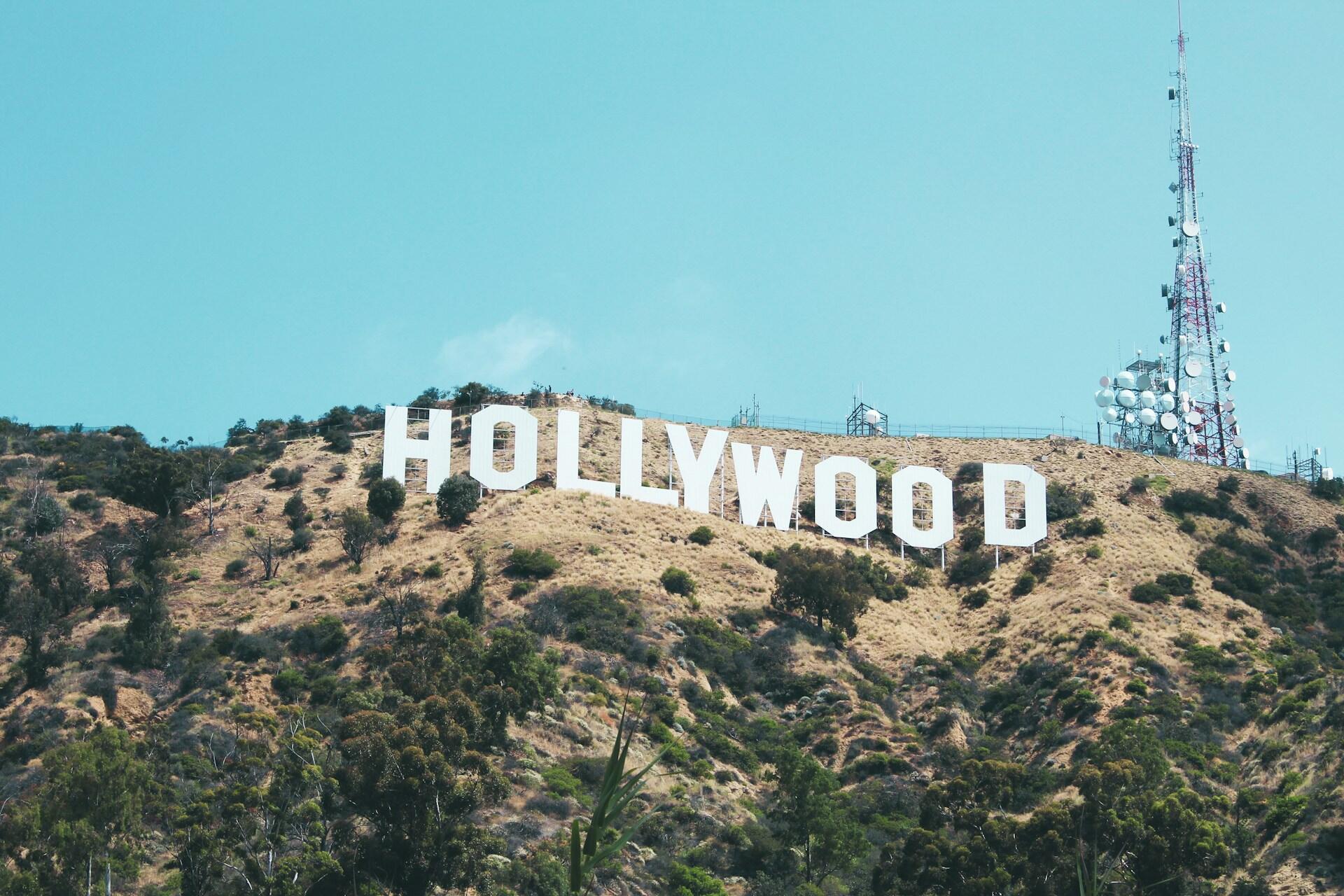
Amália Rodrigues
This singer and beautiful Portuguese film actress, born in Fundao in 1920 and deceased in 1999, is an icon of the fado tradition, but more than that: she represents the best of everything Portugal has to offer.
albums during her career.
A true cultural icon, she has become ingrained in the Portuguese cultural consciousness over the years and years. From the Douro Valley to Oporto, everyone knows her name. An actual celebrity with a long and prosperous career, sometimes tempestuous, but who has never stopped singing in her mother tongue of Portuguese, making her country shine and influencing Portuguese music in general.
An excellent way to learn this foreign language is through songs and typical Lusophone melodies, sometimes off the beaten path, taking us directly into the narrow streets of villages around the capital city of Lisbon, to the rolling plains and mountainous vistas of the countryside, and on a voyage through Portugal's history. A must-hear in terms of music and a typical Portuguese personality!
Eusébio
Before Cristiano Ronaldo (more on him in a moment), Eusébio da Silva Ferreira was easily the most famous name in Portuguese football. Born in Mozambique, which was a Portuguese colony at the time, Eusébio moved to Lisbon to play football for Benfica in 1961. He spent 15 years with the club, scoring 473 goals in 440 matches.
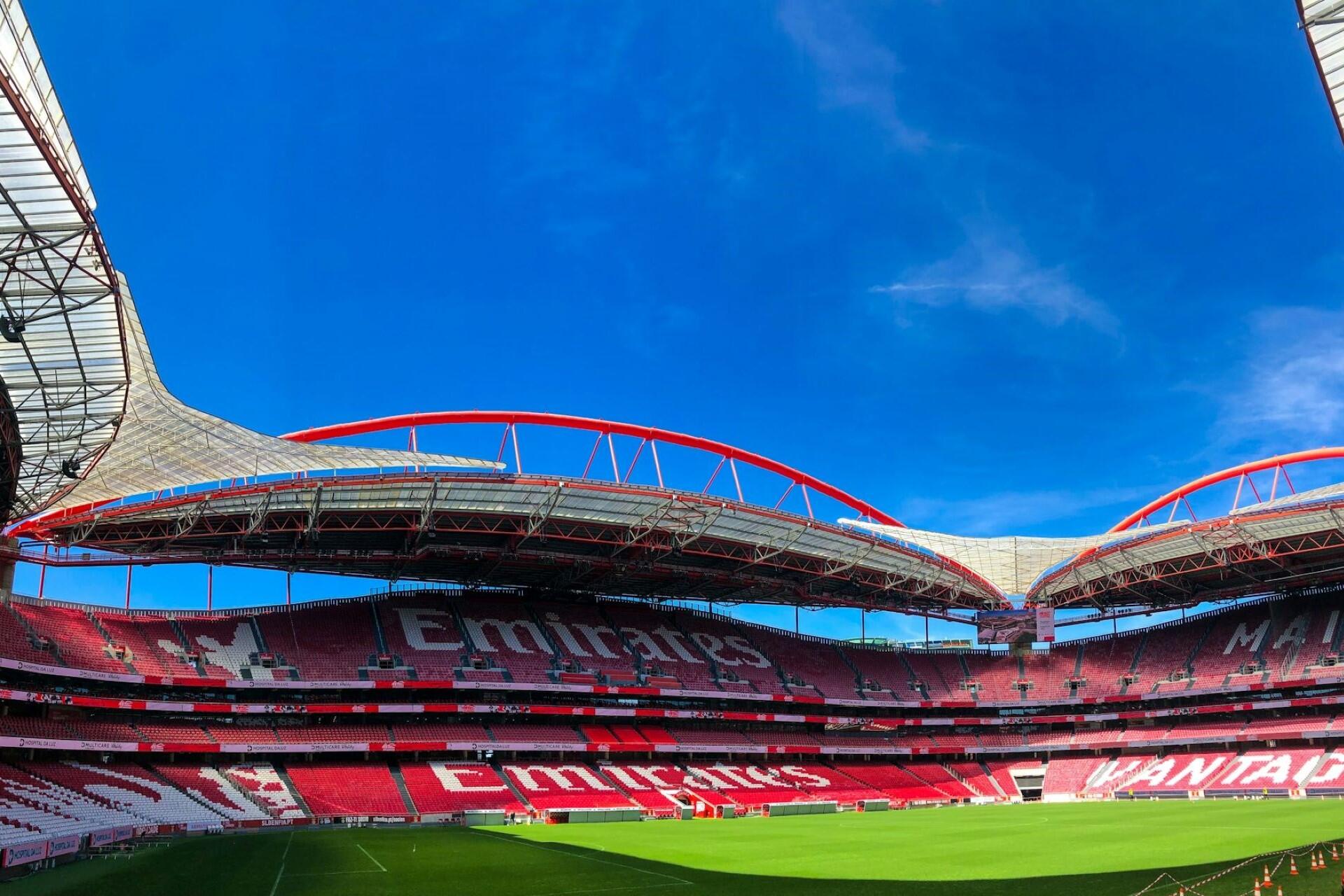
He was nicknamed the "Black Panther" for his speed, strength, and playing style. Eusébio helped Benfica dominate Portuguese football at the time and win the 1962 European Cup against Real Madrid. He led Portugal to third place in the 1966 FIFA World Cup where he was the tournament's top scorer with nine goals. He won the Ballon d'Or in 1965 and was named Portuguese Footballer of the Year several times.
Cristiano Ronaldo
When celebrity status rubs off on your country of origin… I’ll bet you know of Ronaldo. No? Then turn on the telly! Cristiano has been a staple of popular Portuguese culture for decades now. Cristiano Ronaldo, born in 1985 in Madeira, is the poster boy for Portuguese Men Who Made It. Considered one of the best football players in the world, he has won five Ballons d’Or.
Cristiano Ronaldo first played for the Lisbon Club Sporting CP before moving on to Manchester United and other clubs, elevating them all in the rankings. He has been nominated as the best player by different associations numerous times. With such a prolific career, Ronaldo is proof that Portugal doesn’t just export olivewood and port wine.
Cristiano Ronaldo, born in Madeira, has broken more records than almost any other football player. He has scored over 800 career goals, won five Ballons d’Or, and lifted UEFA Champions League trophies with multiple teams, including Real Madrid. Internationally, he is Portugal’s all-time top scorer and a symbol of Portuguese pride. His career shows why he is considered not only one of the best players of his generation but also one of the most famous people in Portugal today.
| Name | Born / Died | Place of Birth | Field | Known For |
|---|---|---|---|---|
| Henry the Navigator | 1394–1460 | Porto, Portugal | Explorer / Prince | Sponsoring voyages; discoveries of Madeira, Azores, Cape Verde; Age of Exploration |
| Bartolomeu Dias | c. 1450–1500 | Algarve, Portugal | Explorer | First European to round the Cape of Good Hope (1488) |
| Vasco da Gama | c. 1460–1524 | Sines, Portugal | Explorer / Admiral | First voyage from Europe to India by sea (1498) |
| Ferdinand Magellan | 1480–1521 | Sabrosa, Portugal | Explorer / Navigator | Leading the first circumnavigation of the globe (1519–1522) |
| Fernando Pessoa | 1888–1935 | Lisbon, Portugal | Poet / Writer | Over 70 heteronyms; Mensagem; shaping modern Portuguese literature |
| Amália Rodrigues | 1920–1999 | Lisbon, Portugal | Singer / Actress | “Queen of Fado”; 170+ albums; Portuguese cultural icon |
| José Saramago | 1922–2010 | Azinhaga, Portugal | Writer / Novelist | Nobel Prize in Literature (1998); Blindness, Baltasar and Blimunda |
| Eusébio | 1942–2014 | Lourenço Marques, Mozambique | Football player | Benfica legend; Ballon d’Or winner (1965); top scorer at 1966 World Cup |
| Joaquim de Almeida | 1957– | Lisbon, Portugal | Actor | Roles in Desperado, Clear and Present Danger, Fast Five, 24 |
| Cristiano Ronaldo | 1985– | Funchal, Madeira, Portugal | Football player | 5 Ballons d’Or; 800+ goals; Portugal’s all-time top scorer |
To get Portuguese lessons and learn Portuguese online for yourself (including the opportunity to learn European Portuguese online or to take Brazilian Portuguese lessons), why not hire a tutor? Or you might like to consider Portuguese courses in London.
Summarise with AI:

